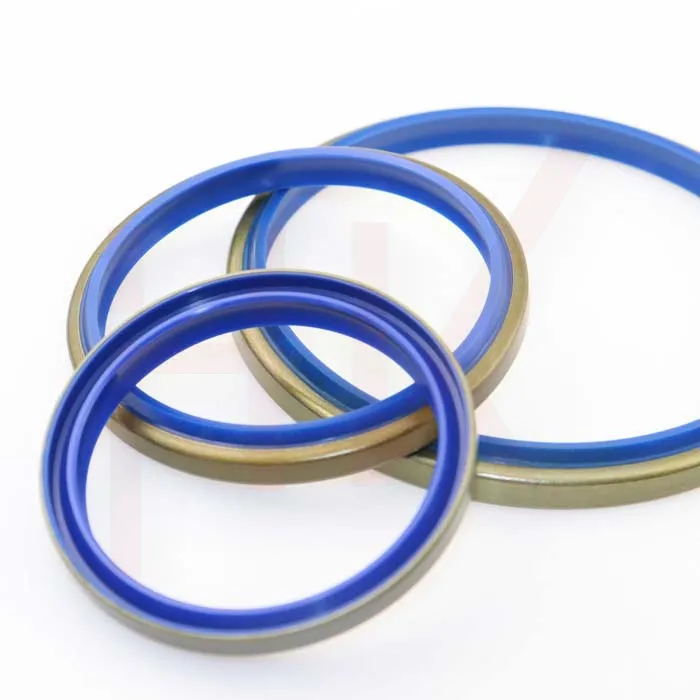9 月 . 25, 2024 23:32 Back to list
Effective Solutions for Dust Wiper Seals in Engineering Applications
Understanding Dust Wiper Seals Protection for Machinery
In many industrial applications, machinery operates in environments filled with dust and debris. This exposure can significantly accelerate wear and tear on mechanical components. To mitigate these effects, dust wiper seals are employed as crucial protective elements in various types of equipment, from construction machinery to automotive applications. This article explores the importance, functionality, and benefits of dust wiper seals.
What are Dust Wiper Seals?
Dust wiper seals, often referred to simply as wiper seals, are designed to prevent contaminants such as dust, dirt, and grime from entering the moving parts of machinery. Typically placed at the outer edge of a hydraulic or pneumatic cylinder, these seals act as the first line of defense against external pollutants. They are usually made from durable materials such as rubber, polyurethane, or other engineered polymers that can withstand harsh operating conditions.
Functionality of Dust Wiper Seals
The primary function of a dust wiper seal is to scrape away debris as the piston or rod moves in and out of the cylinder. When equipment operates, any contaminants on the surface can be pushed into the cylinder, leading to increased wear on internal parts like piston seals or bearings. Dust wiper seals not only keep these contaminants at bay but also extend the lifespan of the machinery by maintaining its operational integrity.
A typical dust wiper seal consists of a lip that makes contact with the rod or piston and a body that holds the seal in place. As the machinery operates, the dynamic movement helps to dislodge and remove debris, preventing it from accumulating and causing damage. This effective scrubbing action is what sets wiper seals apart from standard seals, which only serve the purpose of retaining lubricants within the system.
dust wiper seal

Advantages of Using Dust Wiper Seals
1. Increased Longevity By preventing dirt and dust from entering the cylinder, wiper seals enhance the longevity of internal components. This reduction in wear and tear can lead to significant cost savings over time, as machinery requires fewer repairs and less frequent replacements.
2. Improved Performance Clean operating conditions result in more efficient machinery. When contamination is minimized, hydraulic systems work more smoothly, which can improve overall performance and responsiveness.
3. Cost-effective Maintenance Regular maintenance of machinery often involves replacing seals and other components. By installing dust wiper seals, companies can reduce the frequency of these maintenance tasks, allowing for more uptime and less financial investment in repairs.
4. Versatility Dust wiper seals come in various shapes and sizes, making them suitable for a wide range of applications, from heavy-duty construction equipment to lightweight automotive systems. Their versatility ensures that they can be tailored to meet specific operational requirements.
Conclusion
In conclusion, dust wiper seals play an essential role in the protection and maintenance of machinery, particularly in environments where dust and contaminants are prevalent. By effectively preventing dirt from entering moving parts, these seals not only prolong the life of equipment but also enhance its performance and reduce maintenance costs. As industries continue to prioritize efficiency and longevity, the importance of dust wiper seals will undoubtedly grow, making them a critical component in the design and operation of reliable machinery.
-
The Power of Advanced Sealing: High-Pressure Solutions for Modern Machinery
NewsOct.29,2024
-
Optimizing Machinery with High-Performance Oil Seals
NewsOct.29,2024
-
Maximizing Machinery Efficiency with Advanced Oil Seals
NewsOct.29,2024
-
Ensuring Equipment Longevity with Quality Oil Seals
NewsOct.29,2024
-
Enhance Equipment Performance with Quality Oil Seals
NewsOct.29,2024
-
Custom Oil Seals for Specialized Machinery Needs
NewsOct.29,2024
-
The Role of Wiper Seals in Dust Sealing and Oil Protection
NewsOct.20,2024
Products categories
















